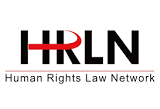Location
c/o Socio-Legal Information Centre
576, Masjid Road, Jungpura
New Delhi - 110014
+91-11-24374501
+91-11-24379855
+91-11-24374502 (Fax)
contact@hrln.org
The Human Rights Law Network (HRLN) is a collective of lawyers and social activists dedicated to the use of the legal system to advance human rights in India and the sub-continent. HRLN collaborates with human rights groups, and grass-roots development and social movements to enforce the rights of poor marginalised people and to challenge oppression, exploitation and discrimination against any group or individual on the grounds of caste, gender, disability, age, religion, language, ethnic group, sexual orientation, and health, economic or social status. HRLN provides pro bono legal services, conducts public interest litigation, engages in advocacy, conducts legal awareness programmes, investigates violations, publishes 'know your rights' materials, and participates in campaigns.
Human Rights Law Network (HRLN) is a division of the Socio-Legal Information Centre (SLIC). SLIC is a non-profit legal aid and educational organization, registered under the Registration of Societies Act, 1860, Indian Public Trust Act, 1950 and the Foreign Contributions (Regulation) Act, 1976.
Members:
Resources
Displaying 1 - 1 of 1Independent People’s Tribunal: An Inquiry into the Status of Implementation of the Forest Rights Act
The Independent People’s Tribunal (IPT) undertook an inquiry on the status of implementation of FRA to understand and analyze the reasons behind the lack of implementation and/or the violations in the implementation of the Act. The objectives of IPT were to:
1. Identify and analyze the various violations happening across states on the implementation
of FRA, and whether they are procedural or structural in nature.
2. The direct and indirect impact its non-implementation would have/has had on the
communities.
3. Assess the status of FRA thereof.

